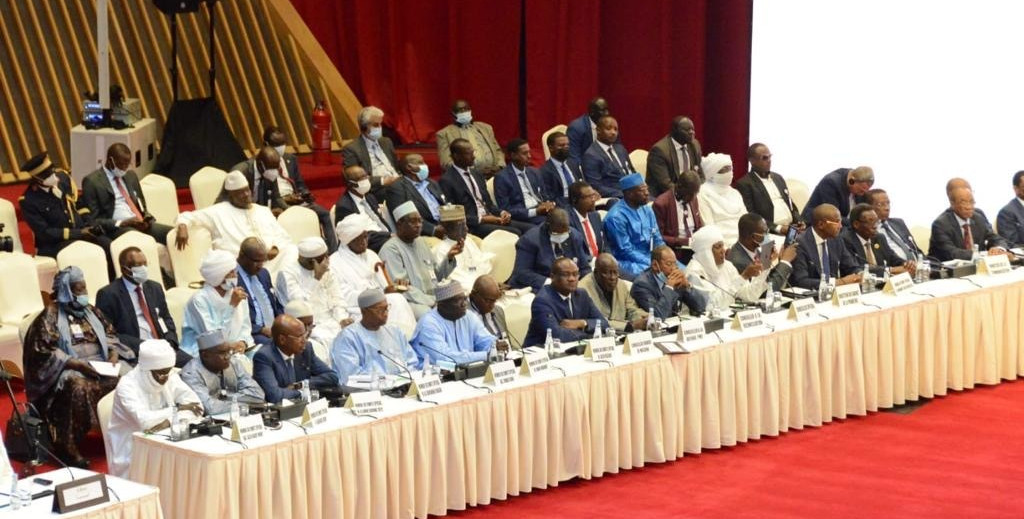Qatar had previously sponsored the signing of the ‘Doha Accord’, also known as the ‘Darfur agreement’, between Khartoum and N’Djamena in 2009.
Delegations that withdrew from Chad peace talks in Doha say their return is dependent on “the provision of an appropriate atmosphere,” a Chad official told Al Araby Al Jadeed on Monday.
President of the “Modern Chadian Generation for Change” (ANUC) movement Rakhis Ali Chahad told the Qatar-based news outlet that the remaining negotiators are waiting on the Qatari mediator to communicate with those who stepped out of the Doha talks.
Chahad added that they are waiting on the suspended delegation to provide its stance on the peace proposal presented at the end of June.
Some groups out of the 53 politico-military delegations decided to withdraw from the talks facilitated by Doha on Saturday.
Their withdrawal was in response to the reveal of the date for the national dialogue, announced Transitional Military Council (TMC) of President Mahamat Idriss Deby as 20 August.
Delegations that withdrew said the date was set without consultation and accused the government delegation of “harassment, intimidation, threats and disinformation”.
A source privy to the matter told Doha News on Sunday that the talks will continue and the group that suspended their participation is “very small”.
“To give a chance to the peace so longed for by the Chadian people, we shall not suspend ongoing negotiations…We thank the State of Qatar for its mediation and renew to it our full confidence,” read a letter signed by several Chadian sides seen by Doha News.
A total of 32 movements also agreed to continue with the talks, noting that they are on the brink of reaching “a fair deal”.
Qatar has been hosting the preparatory talks since 13 March and has brought together more than 50 opposition groups in a bid to break a political deadlock in Chad by paving the way for long-promised, free and transparent elections.
The Gulf state was named an official mediator following an unanimous agreement by parties involved.
While government delegations claimed talks were progressing, opposing groups stated otherwise, pointing to a lack of an agreement.
According to Al Araby Al Jadeed, Qatar presented the Chadian sides a draft peace agreement on 30 June instead of the previous “peace initiative” that was handed to the conflicting parties mid last month.
Qatar reportedly withdrew the previous proposal after rebel groups disagreed with its provisions, which entailed the disarmament of the groups. The opposition believed that the disarmament should take place along with the formation of a national army and under an elected government.
Under the new proposal, the disarmament is delayed.
Prior to the latest dialogue in Doha, Qatar had sponsored the signing of the ‘Doha Accord’, also known as the ‘Darfur agreement’, between Khartoum and N’Djamena in 2009.
A Doha-facilitated agreement, co-sponsored with Libya, was also signed amid tensions between Sudan and Chad in 2008. At the time, Sudan and Chad exchanged accusations over support of rebel attacks inside their territories.
Political deadlock
The current TMC leader had named a 40-member transitional government in May that was set to remain in office until the end of 2022. Deby had also formed the 93-member interim parliament in September, the National Transitional Council (NTC).
The developments came after the current TMC president assumed power following the death of his father, former President Idriss Deby.
The former leader was killed on 20 April 2021 during intense fighting between government and rebels from the Libya-based Front for Change and Concord in Chad (FACT) group.
N’Djamena has since witnessed rising tensions between conflicting sides as Chadians demand a civilian-led transition.
While opposition groups have also called on Deby step away from elections, the government has insisted on discussing the matter during the national dialogue.







